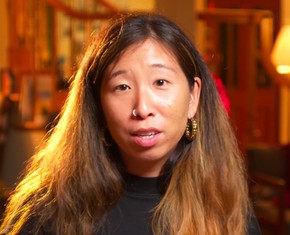The views expressed in our content reflect individual perspectives and do not represent the authoritative views of the Baha'i Faith.
I have a friend who marched with Dr. Martin Luther King, Jr. I asked her once what he was like. She said, “His whole heart radiated unity.”
I’ve never forgotten her answer. Then, long after she told me about Dr. King’s heart, I came across this strikingly similar passage in the Baha’i teachings:
Every heart should radiate unity, so that the Light of the one Divine Source of all may shine forth bright and luminous. We must not consider the separate waves alone, but the entire sea. We should rise from the individual to the whole. The spirit is as one great ocean and the waves thereof are the souls of men. – Abdu’l-Baha, Paris Talks, p. 84.
That, of course, is what Dr. King, and Gandhi, and the Buddha, and Christ, and Baha’u’llah, and all the prophets and founders of the world’s great Faiths did: they found ways to “rise from the individual to the whole.” They transcended their own personal concerns, going beyond the individual waves of the sea, and transmuted their lives into one great ocean of spiritual love and unity. They spoke to all humanity.
Have you ever thought about what it takes to do that?
Most of us get up in the morning and go about the business of supporting ourselves and our families, working in any way we can to make ends meet. We might volunteer in good causes or donate funds or even organize and run charitable institutions for the betterment of society—but how many of us really reach the level of sacrifice, love for others and world-mindedness it takes to become so morally evolved? How many of us even aspire to such universal service to humanity? How many of us develop a heart that radiates unity?
The Baha’i teachings say that every individual can aspire to create unity in the world:
Reflect ye as to other than human forms of life and be ye admonished thereby: those clouds that drift apart cannot produce the bounty of the rain, and are soon lost; a flock of sheep, once scattered, falleth prey to the wolf, and birds that fly alone will be caught fast in the claws of the hawk. What greater demonstration could there be that unity leadeth to flourishing life, while dissension and withdrawing from the others, will lead only to misery; for these are the sure ways to bitter disappointment and ruin. – Abdu’l-Baha, Selections from the Writings of Abdu’l-Baha, p. 277.
Unity, Abdu’l-Baha reminds us, leads to a flourishing life, and disunity leads to its opposite. You can see that life lesson everywhere in the physical world: when you see construction, the building of a new road or building or organization, that requires unity. It takes teamwork, conviction, collaboration and cooperation to build just about anything significant. On the other hand, when you see destruction, it signifies disunity. When a building slowly crumbles, when a culture degrades, when a group of people disperses and can no longer hold together, the unity that once made them whole has failed:
… the cause of the welfare, happiness, joy and comfort of humankind are amity and union, whereas dissension and discord are most conducive to hardship, humiliation, agitation and failure. – Ibid., p. 287.
It’s easy to see this principle in action, the Baha’i teachings say:
… if, as thou passest by fields and plantations, thou observest that the plants, flowers and sweet-smelling herbs are growing luxuriantly together, forming a pattern of unity, this is an evidence of the fact that that plantation and garden is flourishing under the care of a skilful gardener. But when thou seest it in a state of disorder and irregularity thou inferrest that it hath lacked the training of an efficient farmer and thus hath produced weeds …
It therefore becometh manifest that amity and cohesion are indicative of the training of the Real Educator, and dispersion and separation a proof of savagery and deprivation of divine education.
A critic may object, saying that peoples, races, tribes and communities of the world are of different and varied customs, habits, tastes, character, inclinations and ideas, that opinions and thoughts are contrary to one another, and how, therefore, is it possible for real unity to be revealed and perfect accord among human souls to exist?
In answer we say that differences are of two kinds. One is the cause of annihilation and is like the antipathy existing among warring nations and conflicting tribes who seek each other’s destruction, uprooting one another’s families, depriving one another of rest and comfort and unleashing carnage. The other kind which is a token of diversity is the essence of perfection and the cause of the appearance of the bestowals of the Most Glorious Lord. – Ibid., pp. 290-291.
So if every heart could learn to radiate unity, we could spread that love, kindness and acceptance to every member of the human family:
Likewise, in the world of minds and souls, fellowship, which is an expression of composition, is conducive to life, whereas discord, which is an expression of decomposition, is the equivalent of death. Without cohesion among the individual elements which compose the body politic, disintegration and decay must inevitably follow and life be extinguished. Ferocious animals have no fellowship. The vultures and tigers are solitary, whereas domestic animals live together in complete harmony. The sheep, black and white, associate without discord. Birds of various species and colors wing their flight and feed together without a trace of enmity or disagreement. Therefore, in the world of humanity it is wise and seemly that all the individual members should manifest unity and affinity. – Abdu’l-Baha, The Promulgation of Universal Peace, p. 55.
















Comments
Sign in or create an account
Continue with Googleor